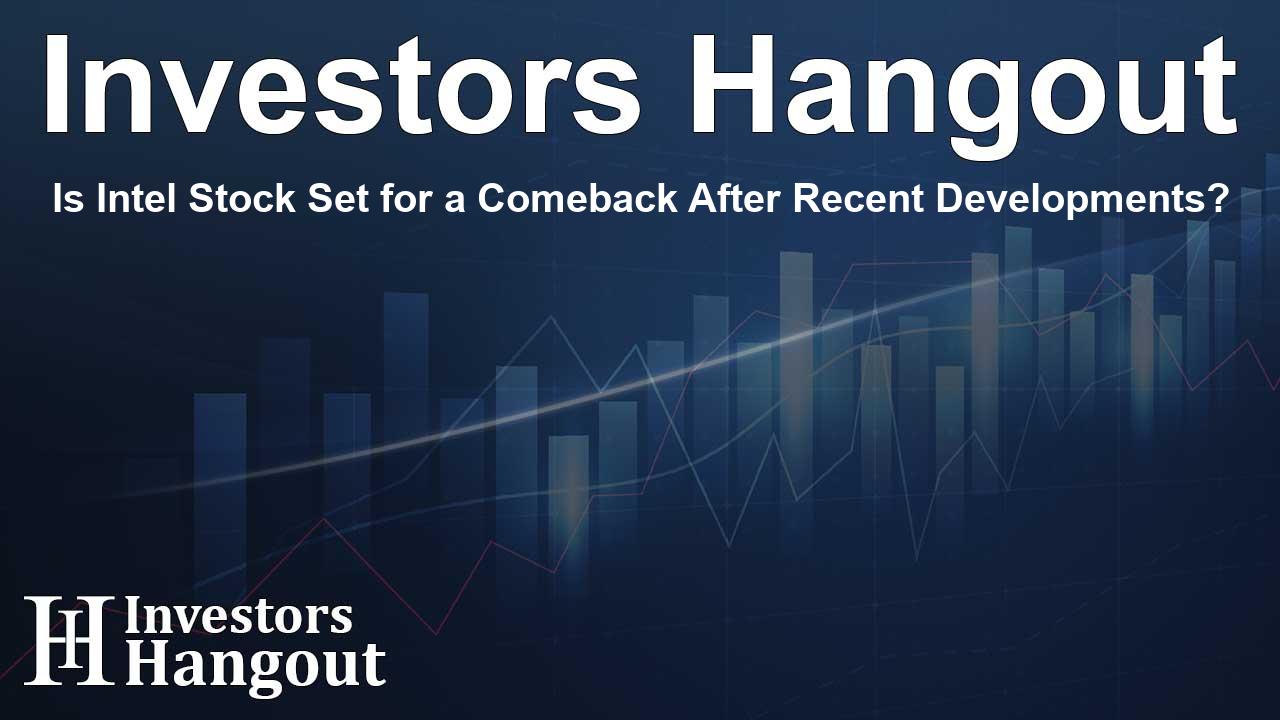Is Intel Stock Set for a Comeback After Recent Developments?

The Revival of Intel: What Investors Should Know
The dramatic downturn in Intel's (NASDAQ: INTC) stock prices may be reaching an end. Recent changes signal a potential turn of fortune for the tech giant. Notably, Intel is redefining its foundry business, planning to establish it as a subsidiary. Alongside this shift, a newly minted agreement with a major cloud services provider promises to introduce advanced AI chips, paving the way for Intel to reclaim its stature in the booming AI server chip market.
Intel's Transformation and Future Prospects
Intel has faced challenges and a noticeable decline in its competitive standing. CEO Pat Gelsinger's ambitious strategy aims to modernize the company, including investing billions into establishing new foundries. The objective is to cultivate a third-party chip manufacturing sector to rival industry leaders. While there have been advancements in technology, the journey back to supremacy has been rocky.
What's more, the company has committed to a massive budget for capital expenditures that could overload its financial resources in the year ahead. This situation has led to concerns, especially as reports surfaced indicating that chips produced by Intel for a prominent client did not meet quality standards, raising questions about the company's future in semiconductor production.
Signs of Recovery for Intel
One noteworthy indicator of recovery is the decision to transform Intel's foundry division into a self-sustained entity. This move not only allows for greater operational control but also enables seeking external funding to bolster growth. The collaboration with the cloud services giant may further accelerate this recovery, positioning Intel favorably within the semiconductor field.
Investment Potential and Market Position
Despite suffering around a 60% drop in stock value, the recent uptick signals an enticing investment proposition. Investors can draw attention to Intel's valuation, which, while showing promise, still seems misaligned with the overall industry. The disparity is apparent when comparing Intel's price-to-sales (P/S) ratio with industry counterparts. Instead of 11 like rivals, Intel's P/S ratio rests under 2, indicating possible undervaluation.
This scenario suggests that the market has substantially underappreciated Intel's worth, as evidenced by its price-to-book-value ratio falling below 0.8. Such metrics highlight the opportunity for investor capital to yield returns, provided the company can navigate its uncertainty and operational repercussions effectively.
The Competitive Semiconductor Landscape
As the semiconductor market experiences rapid growth driven by advancements in AI technology, competition remains fierce. Leading firms such as AMD, Qualcomm, and Nvidia have capitalized on opportunities that have eluded Intel, leading to significant market gains for those companies. While Intel’s pricing may appear attractive at first glance, investors must deliberate whether pursuing Intel shares is worthwhile amid the robust performance of its more successful competitors.
Guidelines for Investing in Intel Stock
For individuals considering investment in Intel, it's advisable to approach with caution and perhaps keep positions small and speculative. With potential upsides contingent on securing financing and the successful production of AI chips, the landscape appears fraught with risk. The positive growth story hinges on Intel’s ability to effectively leverage its new partnerships and overcome previous operational challenges.
While there's a glimmer of hope for Intel's resurgence, it remains prudent for investors to proceed with caution and take a discerning approach when evaluating their commitment to the stock.
Frequently Asked Questions
What recent changes are occurring at Intel?
Intel is restructuring its foundry business into a subsidiary and has entered into a significant partnership to develop AI chips.
Is it a good time to invest in Intel?
While Intel's stock shows signs of recovery, investors should evaluate the risks and potential rewards before making significant investments.
How does Intel's valuation compare to its competitors?
Intel's price-to-sales ratio is substantially lower than many of its competitors, indicating potential undervaluation in the market.
What challenges is Intel currently facing?
Intel is dealing with operational setbacks, concerns regarding product quality, and a need for capital to fund its ambitious plans.
Can Intel return to its former competitive position?
While there is potential for recovery, achieving that goal will require overcoming significant challenges and strategic improvements.
About Investors Hangout
Investors Hangout is a leading online stock forum for financial discussion and learning, offering a wide range of free tools and resources. It draws in traders of all levels, who exchange market knowledge, investigate trading tactics, and keep an eye on industry developments in real time. Featuring financial articles, stock message boards, quotes, charts, company profiles, and live news updates. Through cooperative learning and a wealth of informational resources, it helps users from novices creating their first portfolios to experts honing their techniques. Join Investors Hangout today: https://investorshangout.com/
Disclaimer: The content of this article is solely for general informational purposes only; it does not represent legal, financial, or investment advice. Investors Hangout does not offer financial advice; the author is not a licensed financial advisor. Consult a qualified advisor before making any financial or investment decisions based on this article. The author's interpretation of publicly available data shapes the opinions presented here; as a result, they should not be taken as advice to purchase, sell, or hold any securities mentioned or any other investments. The author does not guarantee the accuracy, completeness, or timeliness of any material, providing it "as is." Information and market conditions may change; past performance is not indicative of future outcomes. If any of the material offered here is inaccurate, please contact us for corrections.